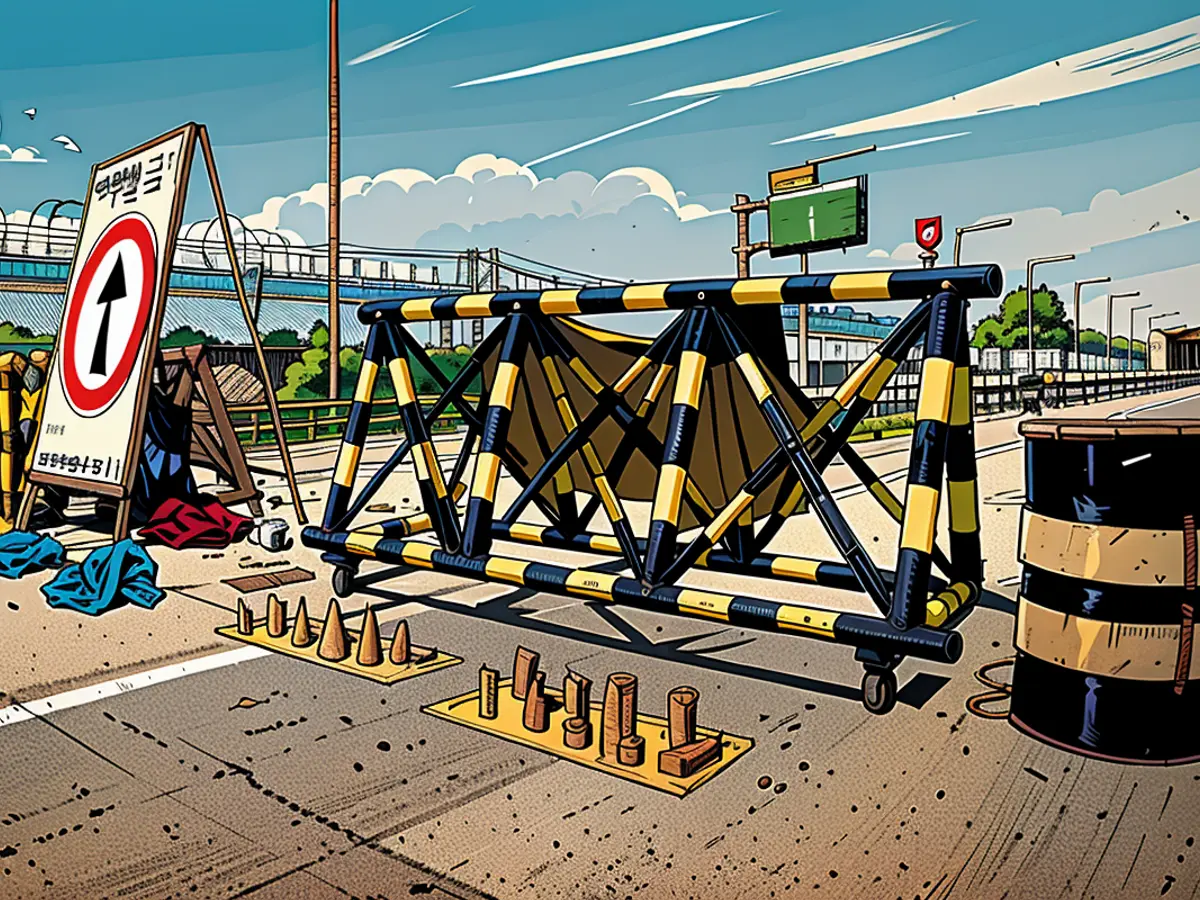North Korean troops have suffered casualties from landmine explosions in the Demilitarized Zone (DMZ) over the past few months, according to the South.
Since January, soldiers from North Korea have been planting landmines and constructing what seem to be anti-tank barriers at various locations across the Demilitarized Zone (DMZ) separating North and South Korea, as per South Korea's Joint Chiefs of Staff (JCS).
The JCS reported that a number of North Korean soldiers have been either killed or injured due to landmine explosions, with no further details regarding casualties provided.
The South Korean military is keeping a close eye on North Korea's military activities near the border, according to the JCS.
This news emerges at a time of increased tension on the Korean Peninsula, where North Korean leader Kim Jong Un has escalated his aggressive rhetoric and abandoned his policy of pursuing peaceful reunification with South Korea.
Recently, hundreds of trash-filled balloons launched from the North have been landing in the South, while the South Korean government restarted propaganda broadcasts via loudspeakers across the border.
Last week, Kim Yo Jong, Kim Jong Un's sister and spokesperson for Pyongyang, issued a threat stating the resumption of these broadcasts could lead to a perilous situation, cautioning that South Korea could face an undefined "new counteraction" from the North if it persists with the action and fails to prevent activists from disseminating anti-North Korean propaganda leaflets over the border.
The 160-mile-long DMZ was created at the end of the Korean War in 1953, dividing the Korean Peninsula roughly in half under an agreement between North Korea and China on one side and Western allies (known as the United Nations Command) on the other.
Though a formal peace treaty was never signed, leaving the two Koreas in a permanent state of war, the DMZ has since become one of the most heavily fortified borders globally, enclosed by miles of barbed wire, landmines, and patrolled by soldiers from both nations for decades.
In its statement on Tuesday, the JCS reported that North Korean troops have also been dismantling railway tracks and streetlights along roads approaching the border under orders from Kim Jong Un.
It is unclear whether the measures aim to fortify the Military Demarcation Line (MDL) that runs down the center of the DMZ as the official border between the two Koreas, according to the JCS.
The JCS also stated that these measures are an attempt by North Korea to strengthen internal controls, such as stopping North Korean residents and soldiers from defecting to South Korea.
Independently, South Korean troops discharged warning shots after North Korean soldiers working in the DMZ crossed into the South for the second time in under two weeks on Tuesday, as reported by the JCS.
Approximately 20 to 30 North Korean soldiers, carrying work tools, crossed the MDL within the DMZ at around 8:30 a.m. local time, according to the JCS.
They returned to the North following South Korea's warning shots and loudspeaker messages, with the incursion seemingly unintentional, as no unusual activity was detected after the North Korean soldiers' withdrawal.
Read also:
Despite the escalating tensions in the Korean Peninsula, countries around the world are closely monitoring the situation, with Asia being particularly concerned due to its geographical proximity.
This ongoing confrontation in the Demilitarized Zone (DMZ) has garnered attention from the global community, highlighting the importance of maintaining peace and stability in Asia.







